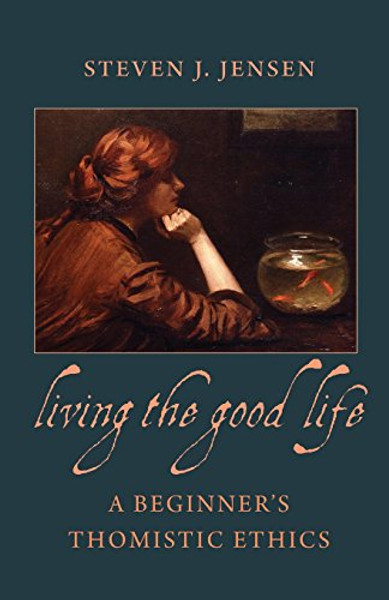Product Overview
Living the Good Life presents a brief introduction to virtue and vice, self-control and weakness, misery and happiness. The book contrasts the thought of Aquinas with popular views, such as moral relativism, values clarification, utilitarianism, Kantian deontology, and situation ethics. Following the Socratic dictum know thyself, Steven J. Jensen investigates the interior workings of the human mind, revealing the interplay of reason, will, and emotions. According to Aquinas, in a healthy ethical life, reason guides the emotions and will to the true human good. In an unhealthy life, emotional impulses distort the vision of reason, entrapping one in futile pursuits. In the human struggle to gain self-mastery, a person must overcome the capricious desires that enslave him to false goods.
Jensen ably guides readers through Aquinas's philosophy and explains the distinction between the moral and intellectual virtues. The moral virtues train our various desires toward the true good, helping us discard our misguided cravings and teaching us to enjoy what is truly worth pursuing. The virtue of justice directs our hearts to the good of others, freeing us from egoism in order to seek a good shared with others. The intellectual virtues train the mind toward the truth, so that we can find fulfillment in human understanding. Most important, the virtue of prudence directs our deliberations to discover the true path of
life.
Intended as a text for students, beginners of philosophy will gain access to a key aspect of Aquinas's thought, namely, that true happiness is realized not in the animal life of passion and greed but only in the reasonable pursuit of human goods, in which we find true peace and rest from the distractions of this world.
ABOUT THE AUTHOR:
Steven J. Jensen is associate professor of philosophy at the University of St. Thomas in Houston and specializes in the areas of ethics and medieval philosophy. He is the author of Good and Evil Actions: A Journey through Saint Thomas Aquinas and editor of The Ethics of Organ Transplantation.
PRAISE FOR THE BOOK:
An accurate, complete, and widely accessible presentation of the fundamental
elements of St. Thomas's thought on moral philosophy. Stephen L. Brock, professor
of medieval philosophy, Pontifical University of the Holy Cross, Rome
Steven Jensen presents a sound introductory text on the ethics of St. Thomas.
Thomas A. Cavanaugh, professor of philosophy, University of San Francisco
This small volume provides a brief, clear introduction to the ethical theory of Thomas Aquinas. . .This will be a useful book for teachers and students of moral and political philosophy. . .Recommended. -Choice








